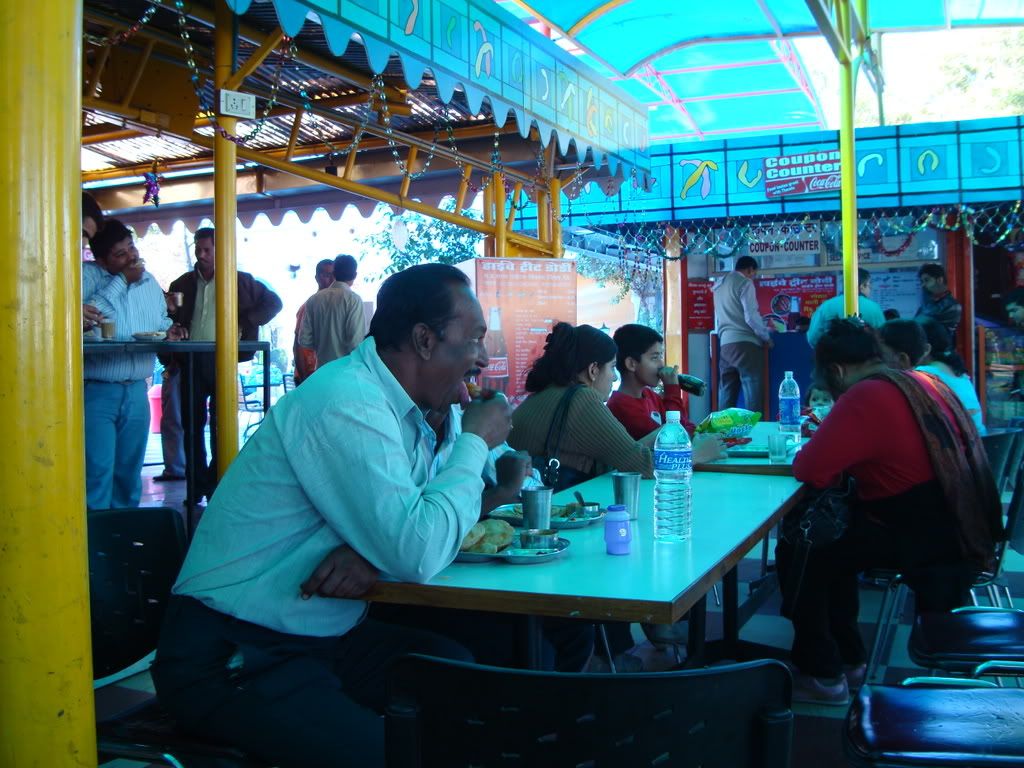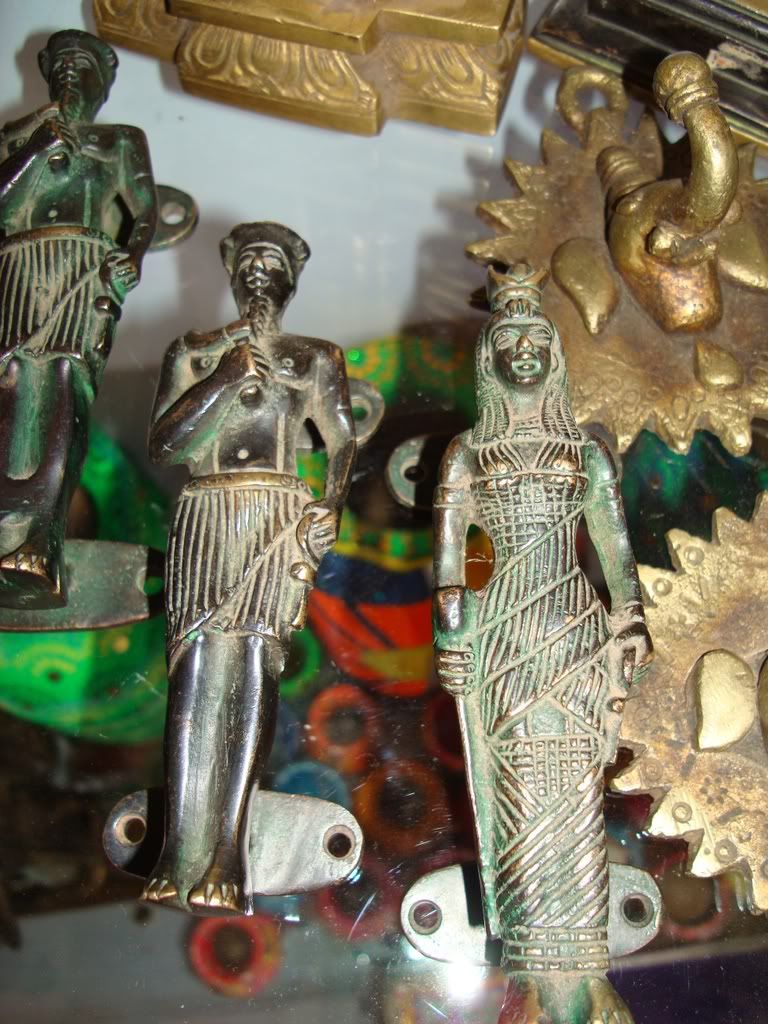Now right after I had posted an article on how a Great Muslim Mughal Emperor had synthesized a new religion, this new book review comes forth. The lady reviewer AYAAN HIRSI ALI is very controversial and I have referred to her and her background tangentially before. Still, the book goes into my to be read pile and will report back later.
Mind you, given the sheer illiteracy of most of the west and its intelligentsia to the Indian and Sufi brands of Islam, the huge gaping holes are obvious. Also ignored are the work of the Muslim reformers, but all that has to wait.
THE SUICIDE OF REASON
Radical Islam’s Threat to the Enlightenment.
By Lee Harris.
290 pp. Basic Books. $26.
Several authors have published books on radical Islam’s threat to the West since that shocking morning in September six years ago. With “The Suicide of Reason,” Lee Harris joins their ranks. But he distinguishes himself by going further than most of his counterparts: he considers the very worst possibility — the destruction of the West by radical Islam. There is a sense of urgency in his writing, a desire to shake awake the leaders of the West, to confront them with their failure to understand that they are engaged in a war with an adversary who fights by the law of the jungle.
Harris, the author of “Civilization and Its Enemies: The Next Stage of History,” devotes most of his book to identifying and distinguishing between two kinds of fanaticism. The first is Islamic fanaticism, a formidable enemy in the struggle for cultural survival. In Harris’s view, this fanaticism has acted as a “defense mechanism,” shielding Islam from the pressures of the changing world around it and allowing it to expand into territories and cultures where it had previously been unknown.
With few exceptions, Harris sees Islamic expansion as permanent. Although this point is arguable, he bravely attempts to make the case that the entry of Islam into another culture produces changes on every level, from political to personal: “Wherever Islam has spread, there has occurred a total and revolutionary transformation in the culture of those conquered or converted.”
In describing the imperialist nature of Islam, Harris suggests that it is distinct from the Roman, British and French empires. He views Islamic imperialism as a single-minded expansion of the religion itself; the empire that it envisions is governed by Allah. In this sense, the idea of jihad is less about the inner struggle for peace and justice and more about a grand mission of conversion. It should be said, however, that Harris’s argument is incomplete, since he does not address the spread of Christianity in the Roman, British and French empires.
The expansion of Islam is perhaps more potent than the expansion of the Christian empires (including Rome after Constantine) because the concept of separating the sacred from the profane has never been acceptable in Islam the way it has been in Christianity. The Romans, the British and the French went about annexing large parts of the world more for earthly or material gain than for spiritual dominance. Under these empires, the clergy was allowed to propagate its faith as long as it did not jeopardize imperial interests.
Harris goes on to argue that the Muslim world, since it is governed by the law of the jungle, makes group survival paramount. This explains in part the willingness of Muslims to become martyrs for the larger community, the umma — uniting peoples separated by geographical boundaries, with different cultures, heritages and languages. According to Harris, this sense of solidarity is sustainable only with the weapon of fanaticism, which obligates each member of the umma to convert infidels and to threaten those who attempt to leave with death. That is, the aim of Muslim culture, so different from that of the West, is both to preserve and to convert, and this is what enables it to spread across the globe.
The second fanaticism that Harris identifies is one he views as infecting Western societies; he calls it a “fanaticism of reason.” Reason, he says, contains within itself a potential fatality because it blinds Western leaders to the true nature of Islamic-influenced cultures. Westerners see these cultures merely as different versions of the world they know, with dominant values similar to those espoused in their own culture. But this, Harris argues, is a fatal mistake. It implies that the West fails to appreciate both its history and the true nature of its opposition.
Nor, he points out, is the failure linked to a particular political outlook. Liberals and conservatives alike share this misperception. Noam Chomsky and Paul Wolfowitz agreed, Harris writes, “that you couldn’t really blame the terrorists, since they were merely the victims of an evil system — for Chomsky, American imperialism, for Wolfowitz, the corrupt and despotic regimes of the Middle East.” That is to say, while left and right may disagree on the causes and the remedies, they both overlook the fanaticism inherent in Islam itself. Driven by their blind faith in reason, they interpret the problem in a way that is familiar to them, in order to find a solution that fits within their doctrine of reason. The same is true for such prominent intellectuals as Samuel Huntington and Francis Fukuyama.
Harris does not regard Islamic fanaticism as a deviancy or a madness that affects a few Muslims and terrifies many. Instead he argues that fanaticism is the basic principle in Islam. “The Muslims are, from an early age, indoctrinated into a shaming code that demands a fanatical rejection of anything that threatens to subvert the supremacy of Islam,” he writes. During the years that this shaming code is instilled into children, the collective is emphasized above the individual and his freedoms. A good Muslim must forsake all: his property, family, children, even life for the sake of Islam. Boys in particular are taught to be dominating and merciless, which has the effect of creating a society of holy warriors.
By contrast, the West has cultivated an ethos of individualism, reason and tolerance, and an elaborate system in which every actor, from the individual to the nation-state, seeks to resolve conflict through words. The entire system is built on the idea of self-interest. This ethos rejects fanaticism. The alpha male is pacified and groomed to study hard, find a good job and plan prudently for retirement: “While we in America are drugging our alpha boys with Ritalin,” Harris writes, “the Muslims are doing everything in their power to encourage their alpha boys to be tough, aggressive and ruthless.”
The West has variously tried to convert, to assimilate and to seduce Muslims into modernity, but, Harris says, none of these approaches have succeeded. Meanwhile, our worship of reason is making us easy prey for a ruthless, unscrupulous and extremely aggressive predator and may be contributing to a slow cultural “suicide.”
Harris’s book is so engaging that it is difficult to put down, and its haunting assessments make it difficult for a reader to sleep at night. He deserves praise for raising serious questions. But his arguments are not entirely sound.
I disagree, for instance, that the way to rescue Western civilization from a path of suicide is to challenge its tradition of reason. Indeed, for all his understanding of the rise of fanaticism in general and its Islamic manifestation in particular, Harris’s use of the term “reason” is faulty.
Enlightenment thinkers, preoccupied with both individual freedom and secular and limited government, argued that human reason is fallible. They understood that reason is more than just rational thought; it is also a process of trial and error, the ability to learn from past mistakes. The Enlightenment cannot be fully appreciated without a strong awareness of just how frail human reason is. That is why concepts like doubt and reflection are central to any form of decision-making based on reason.
Harris is pessimistic in a way that the Enlightenment thinkers were not. He takes a Darwinian view of the struggle between clashing cultures, criticizing the West for an ethos of selfishness, and he follows Hegel in asserting that where the interest of the individual collides with that of the state, it is the state that should prevail. This is why he attributes such strength to Islamic fanaticism. The collectivity of the umma elevates the communal interest above that of the individual believer. Each Muslim is a slave, first of God, then of the caliphate. Although Harris does not condone this extreme subversion of the self, still a note of admiration seems to creep into his descriptions of Islam’s fierce solidarity, its adherence to tradition and the willingness of individual Muslims to sacrifice themselves for the sake of the greater good.
In addition, Harris extols American exceptionalism together with Hegel as if there were no contradiction between the two. But what makes America unique, especially in contrast to Europe, is its resistance to the philosophy of Hegel with its concept of a unifying world spirit. It is the individual that matters most in the United States. And more generally, it is individuals who make cultures and who break them. Social and cultural evolution has always relied on individuals — to reform, persuade, cajole or force. Culture is formed by the collective agreement of individuals. At the same time, it is crucial that we not fall into the trap of assuming that the survival tactics of individuals living in tribal societies — like lying, hypocrisy, secrecy, violence, intimidation, and so forth — are in the interest of the modern individual or his culture.
I was not born in the West. I was raised with the code of Islam, and from birth I was indoctrinated into a tribal mind-set. Yet I have changed, I have adopted the values of the Enlightenment, and as a result I have to live with the rejection of my native clan as well as the Islamic tribe. Why have I done so? Because in a tribal society, life is cruel and terrible. And I am not alone. Muslims have been migrating to the West in droves for decades now. They are in search of a better life. Yet their tribal and cultural constraints have traveled with them. And the multiculturalism and moral relativism that reign in the West have accommodated this.
Harris is correct, I believe, that many Western leaders are terribly confused about the Islamic world. They are woefully uninformed and often unwilling to confront the tribal nature of Islam. The problem, however, is not too much reason but too little. Harris also fails to address the enemies of reason within the West: religion and the Romantic movement. It is out of rejection of religion that the Enlightenment emerged; Romanticism was a revolt against reason.
Both the Romantic movement and organized religion have contributed a great deal to the arts and to the spirituality of the Western mind, but they share a hostility to modernity. Moral and cultural relativism (and their popular manifestation, multiculturalism) are the hallmarks of the Romantics. To argue that reason is the mother of the current mess the West is in is to miss the major impact this movement has had, first in the West and perhaps even more profoundly outside the West, particularly in Muslim lands.
Thus, it is not reason that accommodates and encourages the persistent segregation and tribalism of immigrant Muslim populations in the West. It is Romanticism. Multiculturalism and moral relativism promote an idealization of tribal life and have shown themselves to be impervious to empirical criticism. My reasons for reproaching today’s Western leaders are different from Harris’s. I see them squandering a great and vital opportunity to compete with the agents of radical Islam for the minds of Muslims, especially those within their borders. But to do so, they must allow reason to prevail over sentiment.
To argue, as Harris seems to do, that children born and bred in superstitious cultures that value fanaticism and create phalanxes of alpha males are doomed — and will doom others — to an existence governed by the law of the jungle is to ignore the lessons of the West’s own past. There have been periods when the West was less than noble, when it engaged in crusades, inquisitions, witch-burnings and genocides. Many of the Westerners who were born into the law of the jungle, with its alpha males and submissive females, have since become acquainted with the culture of reason and have adopted it. They are even — and this should surely relieve Harris of some of his pessimism — willing to die for it, perhaps with the same fanaticism as the jihadists willing to die for their tribe. In short, while this conflict is undeniably a deadly struggle between cultures, it is individuals who will determine the outcome.
Ayaan Hirsi Ali, a resident fellow at the American Enterprise Institute in Washington, is the author of “Infidel.”




 Hindu Myth, Hindu History: Religion, Art, and Politics
Hindu Myth, Hindu History: Religion, Art, and Politics